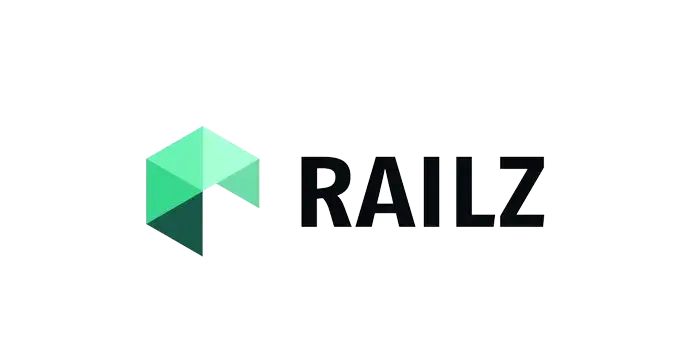Ready to launch your own podcast? Book a strategy call.
Frontlines.io | Where B2B Founders Talk GTM.
Strategic Communications Advisory For Visionary Founders
Conversation
Highlights
From Tax Tool to Infrastructure Play: How Blockpit is Building the Foundation for Crypto’s Regulated Future
Most crypto founders build exchanges, wallets, or trading tools. Florian Wimmer built something different: the regulatory infrastructure that could become as fundamental to crypto as SAP is to traditional finance.
In a recent episode of Category Visionaries, Blockpit’s CEO shared how his journey from mining Bitcoin in his cellar to navigating an expanding crypto portfolio led to identifying a critical gap in the market. “I had like 20 exchange accounts because some coins that came out were not on that exchange that I was. And then decentralized finance came around and the wallets just started accumulating and I think 70 different depots and accounts,” Florian explains.
The challenge wasn’t just managing multiple accounts – it was making sense of the tax implications. As a software engineer working at KPMG in Austria, one of the first countries to implement specific crypto tax laws, Florian found himself struggling with “20,000 transactions per year” and the impossibility of accurate manual calculations.
The Evolution from Consumer Product to Infrastructure Play
What started as a solution for personal tax headaches evolved into something much bigger. “The business itself changed a lot over the years,” Florian notes. “We are coming really from this tax product for the individual crypto trader. And to build this, we had to build so much infrastructure, like the data crawling from the exchanges, the standardization, price data asset classification, the tax frameworks for different countries, that we actually started selling infrastructure.”
This evolution wasn’t a pivot but a natural progression driven by market demands. While 85% of their current business remains consumer-focused, Blockpit’s infrastructure play positions them perfectly for incoming regulatory changes that will reshape the crypto landscape.
Regulatory Timing as Strategic Advantage
Rather than seeing regulation as a constraint, Blockpit views it as a catalyst. “Regulation is our driver, not so much the crypto market,” Florian explains. By 2026, a global OECD standard will require crypto service providers to report user transaction and tax information to respective governments. This shift transforms Blockpit’s offering from a nice-to-have feature to essential infrastructure.
“Every crypto service provider will need to hand over the transaction data and tax information of all of their users to the respective government,” Florian elaborates. This requirement creates a massive opportunity for infrastructure providers who can standardize and facilitate this reporting.
Building for Scale Across Markets
Scaling across different jurisdictions presents unique challenges. “Every regulation is different and you basically have to build a new framework for every country,” Florian notes. Their approach involves working with external experts for initial framework setup and ongoing maintenance, with technical implementation taking between six weeks to three months per country.
Rather than rushing into new markets, Blockpit’s expansion strategy is driven by partner demand and market readiness. “We started Netherlands because we have a big partner there and they said like we need Netherlands and Belgium and this is attraction that you can expect through us,” Florian shares.
The Power of Infrastructure-First Thinking
Looking ahead, Blockpit’s vision extends beyond tax reporting to becoming the standard for crypto transaction data. “What we’re really wanting to build and what’s like the big North Side is like a standard, a reporting standard for on chain and off chain data,” Florian explains. “Ideally, somewhere in the back end, nobody knows that it’s Blockpit but participating in every single transaction that’s done.”
This infrastructure-first approach offers valuable lessons for founders navigating regulated industries. Rather than fighting regulation or building consumer-facing solutions, Blockpit is creating the foundational layer that makes compliance possible. It’s a reminder that sometimes the biggest opportunities lie not in what end users see, but in the invisible infrastructure that powers an entire industry.
For founders building in regulated spaces, Blockpit’s journey highlights the importance of timing, strategic positioning, and the power of building infrastructure that becomes essential as markets mature. As Florian puts it, “I think timing is really the challenge. I think we’ve definitely been too early founding five years ago, the need is just not there.” But by building ahead of regulatory demands, Blockpit has positioned itself to become the backbone of crypto’s regulated future.
Actionable
Takeaways
Embrace Personal Pain Points as Innovation Opportunities:
Florian’s entry into the crypto tax solution space was born out of his own frustrations with managing crypto taxes. For B2B tech founders, this underscores the value of leveraging personal challenges as catalysts for innovation. If you're facing an industry-specific problem, there’s a good chance others are too. Consider how your unique experiences and insights could address these challenges and fill a market gap.
Adapt Your Business Model to Regulatory Environments:
Blockpit's shift from a consumer-focused product to a more infrastructure-oriented service highlights the importance of staying agile and responsive to regulatory changes. For startups operating in sectors subject to heavy regulation, such as fintech or healthtech, maintaining flexibility in your business model can help you swiftly adapt to new laws and compliance requirements, turning potential obstacles into opportunities.
Build Trust Through Transparency and Quality:
Trust is paramount, especially in industries like crypto, where skepticism and regulatory scrutiny are high. Blockpit ensures their platform not only provides accurate tax reports but also validates their processes with audits and external experts. This approach can be instrumental for startups in building credibility and trust with users and stakeholders by emphasizing transparency and the quality of your solution.
Utilize Partnerships for Scalable Growth:
As Blockpit expands into new markets, partnerships with local tax experts and integration with crypto exchanges play a crucial role in adapting their service to meet country-specific regulations. For startups looking to scale, especially in diverse and fragmented markets, forming strategic partnerships can facilitate localized adaptations of your product, enhancing your scalability and market reach.
Prioritize Product Over Promotion in Early Stages:
Blockpit’s focus on product development over marketing in its early stages underscores the importance of building a solid, trustworthy product before aggressively pursuing growth and exposure. For founders, especially in the tech space, ensuring your product effectively solves a real problem and delivers value should be your primary focus. A strong product can naturally drive user adoption and word-of-mouth referrals, laying a healthier foundation for long-term growth.





























































































